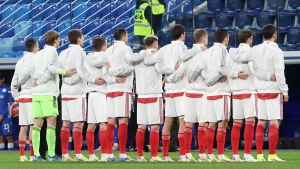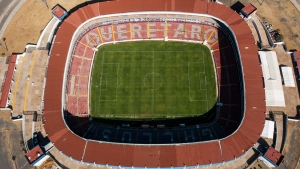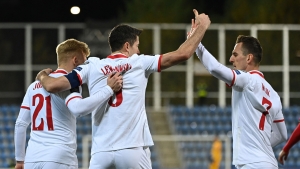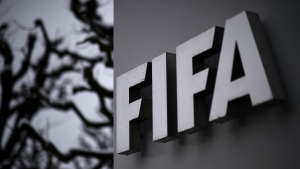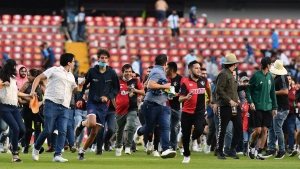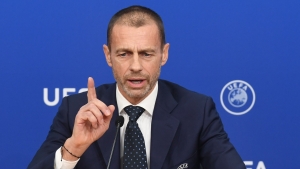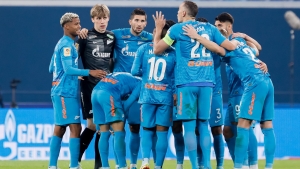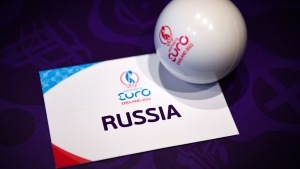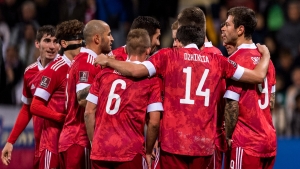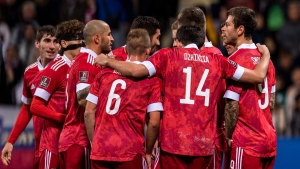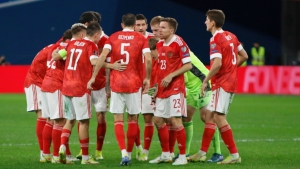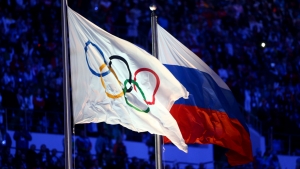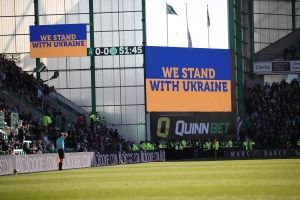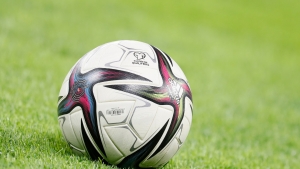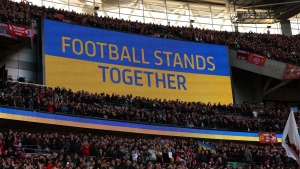FIFA has confirmed Russia must compete in their upcoming matches as the Football Union of Russia (RFU).
The order from world football's governing body comes in the wake of Russia's invasion of Ukraine, which began on Thursday, with fighting having escalated over the weekend.
FIFA has been put under increasing pressure to sanction Russia, with UEFA having already stripped St Petersburg of this season's Champions League final, while the football associations of Poland, Sweden and the Czech Republic all jointly outlined their refusal to play Russia.
This cast doubt over next month's World Cup qualifiers, with Poland set to face Russia in a play-off semi-final, with the winner of that match to play either Sweden or the Czech Republic for a place in Qatar.
On Sunday, FIFA confirmed Russia would have to play under a neutral banner of the RFU, similar to how the International Olympic Committee had the country's athletes represent the Russian Olympic Committee following a state-sponsored doping scandal.
Russia's flag cannot be displayed, nor can their anthem be played, and all of their home matches must now take place at a neutral venue, behind closed doors.
A statement read: "FIFA would like to reiterate its condemnation of the use of force by Russia in its invasion of Ukraine. Violence is never a solution and FIFA expresses its deepest solidarity to all people affected by what is happening in Ukraine.
"FIFA calls again for the urgent restoration of peace and for constructive dialogue to commence immediately. FIFA remains in close contact with the Ukrainian Association of Football and members of the Ukrainian football community who have been requesting support to leave the country for as long as the current conflict persists."
"With regard to the upcoming FIFA World Cup 2022 qualifiers, FIFA has taken good note of the positions expressed via social media by the Polish Football Association, the Football Association of the Czech Republic and the Swedish Football Association and has already engaged in dialogue with all of these football associations. FIFA will remain in close contact to seek to find appropriate and acceptable solutions together."
However, FIFA's sanctions do not go far enough, according to Polish FA president Cezary Kulesza, who tweeted: "Today's FIFA decision is totally unacceptable.
"We are not interested in participating in this game of appearances. Our stance remains intact: Polish National Team will NOT PLAY with Russia, no matter what the name of the team is."
FIFA's sanctions followed on from the English FA confirming it would boycott any upcoming matches against Russia for the foreseeable future, at any level.























